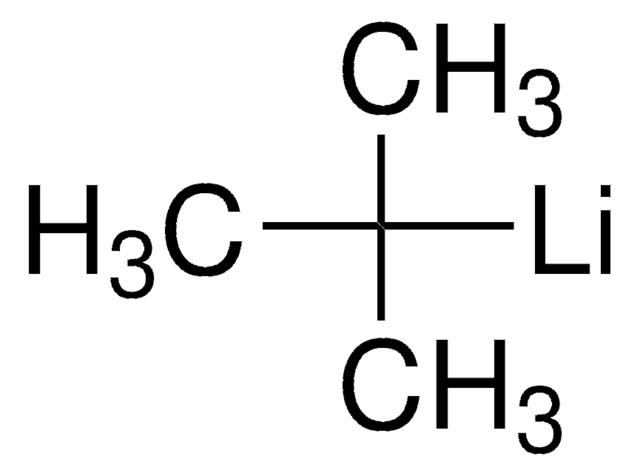516686
Sodium thiomethoxide solution
21% in H2O
Synonym(s):
Sodium methanethiolate solution, Sodium methanethiolate, Sodium thiomethoxide solution
Sign Into View Organizational & Contract Pricing
All Photos(1)
About This Item
Empirical Formula (Hill Notation):
CH3NaS
Molecular Weight:
70.09
Beilstein:
3592983
UNSPSC Code:
12352100
PubChem Substance ID:
NACRES:
NA.22
Recommended Products
Quality Level
concentration
21% in H2O
Looking for similar products? Visit Product Comparison Guide
Related Categories
Legal Information
Product of Arkema
Signal Word
Danger
Hazard Statements
Hazard Classifications
Acute Tox. 4 Oral - Eye Dam. 1 - Flam. Liq. 3 - Skin Corr. 1A
Storage Class Code
3 - Flammable liquids
WGK
WGK 3
Flash Point(F)
80.6 °F - closed cup
Flash Point(C)
27 °C - closed cup
Personal Protective Equipment
dust mask type N95 (US), Eyeshields, Gloves
Certificates of Analysis (COA)
Search for Certificates of Analysis (COA) by entering the products Lot/Batch Number. Lot and Batch Numbers can be found on a product’s label following the words ‘Lot’ or ‘Batch’.
Already Own This Product?
Find documentation for the products that you have recently purchased in the Document Library.
Customers Also Viewed
Y P Pang et al.
FEBS letters, 502(3), 93-97 (2001-10-05)
Using the computer docking program EUDOC, in silico screening of a chemical database for inhibitors of human adenovirus cysteine proteinase (hAVCP) identified 2,4,5,7-tetranitro-9-fluorenone that selectively and irreversibly inhibits hAVCP in a two-step reaction: reversible binding (Ki = 3.09 microM) followed
Surface-initiated reversible addition-fragmentation chain transfer (RAFT) polymerization from fine particles functionalized with trithiocarbonates.
Ohno K, et al.
Macromolecules, 44(22), 8944-8953 (2011)
Mild, selective deprotection of thioacetates using sodium thiomethoxide.
Wallace OB and Springer DM.
Tetrahedron Letters, 39(18), 2693-2694 (1998)
Peter C Tyler et al.
Journal of the American Chemical Society, 129(21), 6872-6879 (2007-05-10)
Transition state theory suggests that enzymatic rate acceleration (kcat/knon) is related to the stabilization of the transition state for a given reaction. Chemically stable analogues of a transition state complex are predicted to convert catalytic energy into binding energy. Because
Our team of scientists has experience in all areas of research including Life Science, Material Science, Chemical Synthesis, Chromatography, Analytical and many others.
Contact Technical Service












